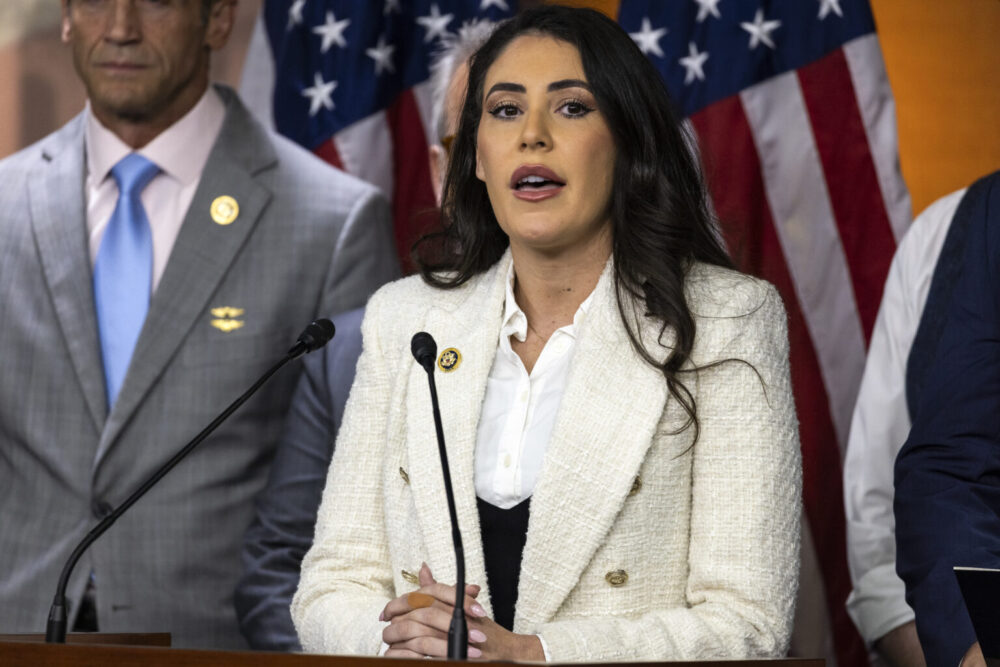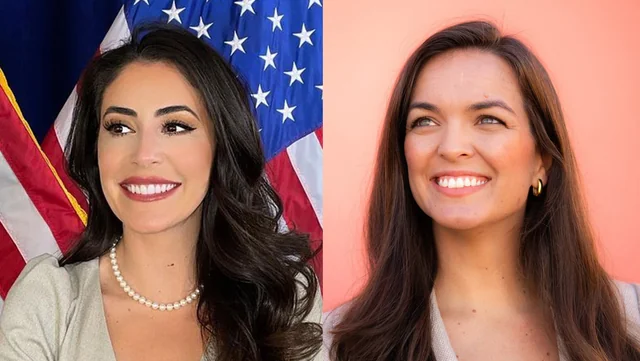In recent years, the issue of dual citizenship has become a significant topic of political debate, particularly in the United States Congress. While dual citizenship is not uncommon in the modern era of global mobility, the idea that individuals holding dual citizenship should be allowed to serve in positions of power within the U.S. government has sparked controversy. This issue came to the forefront when Rep. Anna Paulina Luna of Florida demanded a ban on dual citizens holding office, arguing that “only Americans should make American laws.”
The debate surrounding dual citizenship in Congress touches on several crucial topics, including national security, loyalty, identity, and the integrity of the American political system. While some argue that dual citizenship may pose a threat to national interests, others assert that it reflects the diverse and inclusive nature of the United States, offering a broader range of perspectives to lawmakers. This article explores both sides of the argument, examining the complexities and implications of dual citizenship in American politics.

Understanding Dual Citizenship
Dual citizenship, or dual nationality, refers to the status of an individual who is a citizen of two countries simultaneously. There are several ways in which dual citizenship can arise. One of the most common ways is through birthright citizenship, where an individual is born in one country to parents who are citizens of another country. In other cases, individuals may acquire dual citizenship by naturalizing in another country while retaining their original nationality.
In the United States, dual citizenship is a legally recognized status, and many Americans hold citizenship in other countries without facing legal consequences. Dual citizens are often seen as having ties to both countries, which can result in competing allegiances. While dual citizenship can bring benefits, such as access to healthcare, education, and employment in two different countries, it also presents potential challenges, especially when it comes to public office and political loyalty.
Rep. Anna Paulina Luna’s Stance on Dual Citizenship
Rep. Anna Paulina Luna, a Republican representative from Florida, has become one of the most vocal critics of dual citizenship among elected officials in the United States. Luna recently proposed a ban on dual citizens serving in Congress, arguing that lawmakers must be fully committed to the United States and its interests. According to Luna, holding dual citizenship creates a conflict of interest, as elected officials may feel torn between the U.S. and their other country of citizenship.
In a statement that has resonated with many of her supporters, Luna said, “Only Americans should make American laws.” This assertion encapsulates her belief that U.S. lawmakers should prioritize American interests above all else. Luna’s comments reflect growing concerns among some Americans that dual citizens could be influenced by foreign governments, potentially undermining the nation’s sovereignty and security.
Luna’s criticism of dual citizenship is rooted in the idea of loyalty. She argues that anyone who holds a foreign passport could have divided loyalties, and this could compromise their ability to make decisions that are in the best interest of the U.S. It is a sentiment that has found support among some members of the Republican Party, particularly those concerned about the growing influence of foreign countries on American policy.

On the other side of the debate, many believe that dual citizenship should not disqualify individuals from holding office in Congress. Advocates of dual citizenship argue that the U.S. is a nation built on diversity and inclusion, and that lawmakers with ties to multiple countries can bring unique perspectives to the table. Dual citizens often have firsthand knowledge of international relations, foreign policies, and global issues, which can be invaluable when crafting domestic and foreign policies.
One of the most prominent dual citizens in recent years is Rep. Ilhan Omar of Minnesota. Omar, who was born in Somalia and later became a naturalized U.S. citizen, has faced criticism from some quarters for her background. Critics have questioned her loyalty to the U.S. due to her Somali heritage, but Omar has consistently defended her allegiance to the country. She argues that her unique background allows her to better understand the challenges facing immigrants and refugees and to advocate for policies that benefit marginalized communities.
Supporters of dual citizenship in politics also point to the fact that many countries around the world allow individuals to hold dual citizenship and serve in government positions. In Canada, for example, individuals with dual citizenship can hold public office, and there has been little controversy surrounding the issue. Proponents argue that the ability to serve in Congress should be determined by an individual’s actions and loyalty to the U.S., not simply by the number of passports they hold.
Legal and Constitutional Considerations
The U.S. Constitution does not explicitly address the issue of dual citizenship, leaving it to the courts and lawmakers to interpret how it should be handled. The Constitution sets out the eligibility requirements for members of Congress, such as being a U.S. citizen, meeting age and residency requirements, and being elected by the people. However, there is no mention of dual citizenship as a disqualifying factor.
The lack of a constitutional prohibition on dual citizenship suggests that the framers of the Constitution did not see it as a barrier to public office. In fact, several prominent U.S. politicians have had foreign ties or family connections to other countries, yet their loyalty to the U.S. was never in question. For example, former President John F. Kennedy had Irish ancestry, and former Secretary of State Madeleine Albright was born in Czechoslovakia and later became a U.S. citizen.
In the absence of clear guidance in the Constitution, the issue of dual citizenship has been the subject of legal challenges over the years. In some cases, U.S. citizens who acquired another nationality through naturalization have been required to renounce their foreign citizenship in order to hold public office. However, this has not been a universal requirement, and many dual citizens have successfully run for and served in Congress without facing legal challenges.

National Security Concerns and Foreign Influence
One of the primary arguments against dual citizenship in Congress is the concern over national security and foreign influence. Critics argue that dual citizens may be more susceptible to pressure from foreign governments, which could compromise their ability to make unbiased decisions in the best interest of the U.S. In an era of rising geopolitical tensions, espionage, and cyber threats, there is growing anxiety about the possibility of foreign governments using dual citizens to influence U.S. policy.
The concern is particularly relevant in the context of U.S. foreign policy, where decisions can have far-reaching consequences for global relations. For example, lawmakers involved in negotiating trade deals or defense agreements may have personal or familial ties to foreign countries, which could lead to conflicts of interest. Proponents of banning dual citizens from Congress argue that such conflicts could undermine the integrity of the legislative process and erode public trust in government.
Additionally, the increasing role of foreign money in U.S. politics, particularly through campaign donations and lobbying efforts, has raised concerns about the potential for foreign influence in the political process. While dual citizenship is not the only factor in this issue, critics believe that it may exacerbate the problem by creating opportunities for foreign governments or interest groups to exert influence over U.S. lawmakers.
The Future of Dual Citizenship in Congress
As the debate over dual citizenship continues, it is unclear whether Congress will take action to restrict the participation of dual citizens in the legislative process. The issue is likely to remain contentious, with both sides presenting valid arguments. On one hand, dual citizens may offer valuable perspectives that can enrich the policymaking process. On the other hand, concerns about divided loyalty and national security may continue to fuel calls for restrictions.
Ultimately, the debate over dual citizenship in Congress reflects broader questions about American identity, loyalty, and the role of elected officials in representing the interests of the people. As the U.S. becomes more diverse and interconnected with the rest of the world, it will be important to strike a balance between inclusivity and national security.

Conclusion: A Complex Issue with No Easy Answers
The question of whether dual citizens should be allowed to serve in Congress is a complex and multifaceted issue. While some argue that dual citizenship poses a risk to national security and the integrity of the legislative process, others believe that it reflects the diversity and inclusiveness that defines the United States. As the debate continues, it is essential to consider the broader implications of dual citizenship, including its potential benefits and risks.
At the heart of this debate is a fundamental question about loyalty, identity, and what it means to be an American. As the U.S. navigates an increasingly interconnected world, it will be important for lawmakers to ensure that they are prioritizing the interests of the nation while remaining true to the values that have made America a beacon of freedom and opportunity for people from all corners of the globe.


